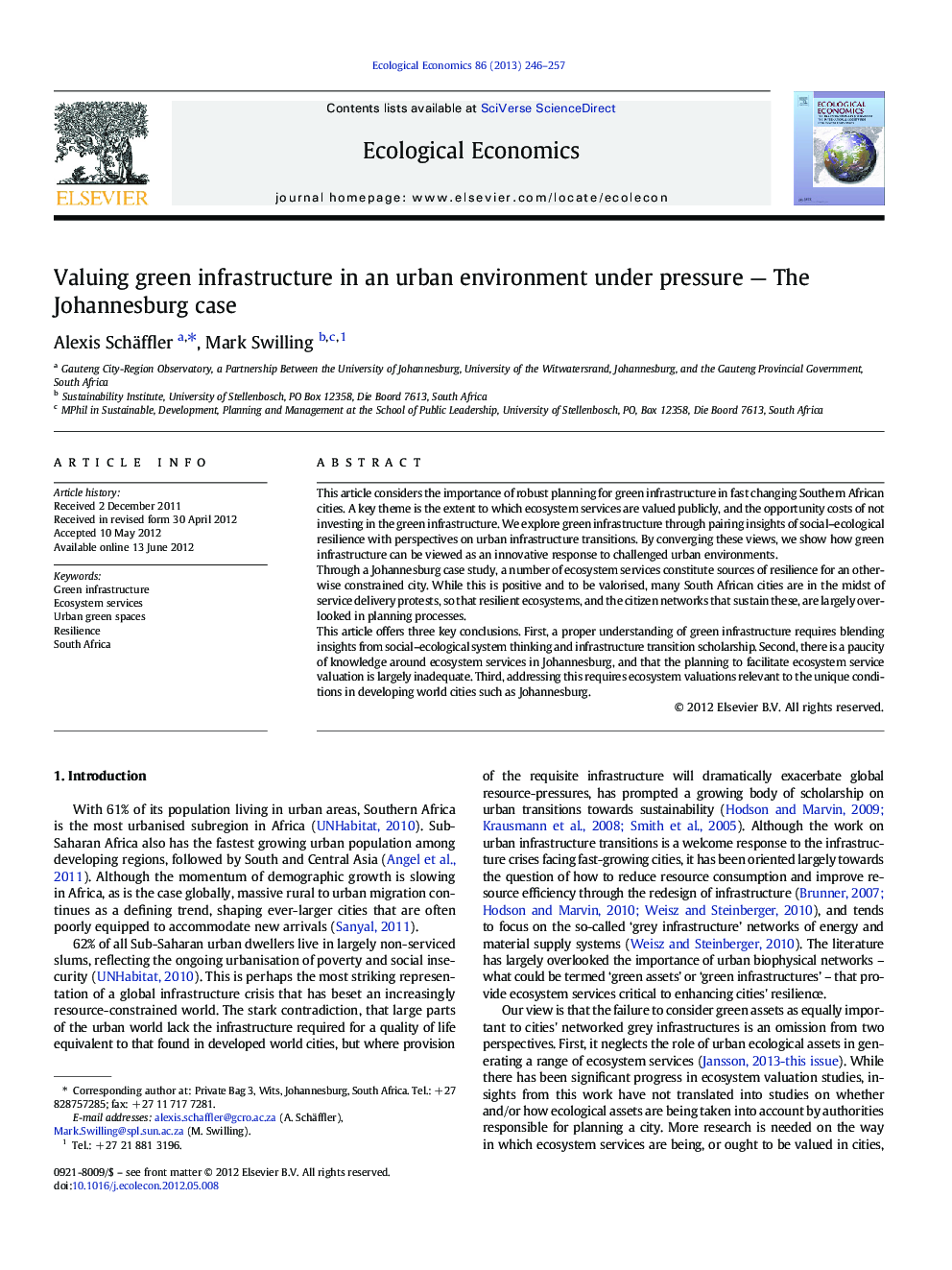| Article ID | Journal | Published Year | Pages | File Type |
|---|---|---|---|---|
| 5050139 | Ecological Economics | 2013 | 12 Pages |
This article considers the importance of robust planning for green infrastructure in fast changing Southern African cities. A key theme is the extent to which ecosystem services are valued publicly, and the opportunity costs of not investing in the green infrastructure. We explore green infrastructure through pairing insights of social-ecological resilience with perspectives on urban infrastructure transitions. By converging these views, we show how green infrastructure can be viewed as an innovative response to challenged urban environments.Through a Johannesburg case study, a number of ecosystem services constitute sources of resilience for an otherwise constrained city. While this is positive and to be valorised, many South African cities are in the midst of service delivery protests, so that resilient ecosystems, and the citizen networks that sustain these, are largely overlooked in planning processes.This article offers three key conclusions. First, a proper understanding of green infrastructure requires blending insights from social-ecological system thinking and infrastructure transition scholarship. Second, there is a paucity of knowledge around ecosystem services in Johannesburg, and that the planning to facilitate ecosystem service valuation is largely inadequate. Third, addressing this requires ecosystem valuations relevant to the unique conditions in developing world cities such as Johannesburg.
⺠This paper presents a green infrastructure planning framework. ⺠The framework combines social-ecological and infrastructure transition scholarship. ⺠Green infrastructure regards ecological assets as infrastructure. ⺠Valuing green infrastructure is useful in planning for rapidly urbanising cities.
